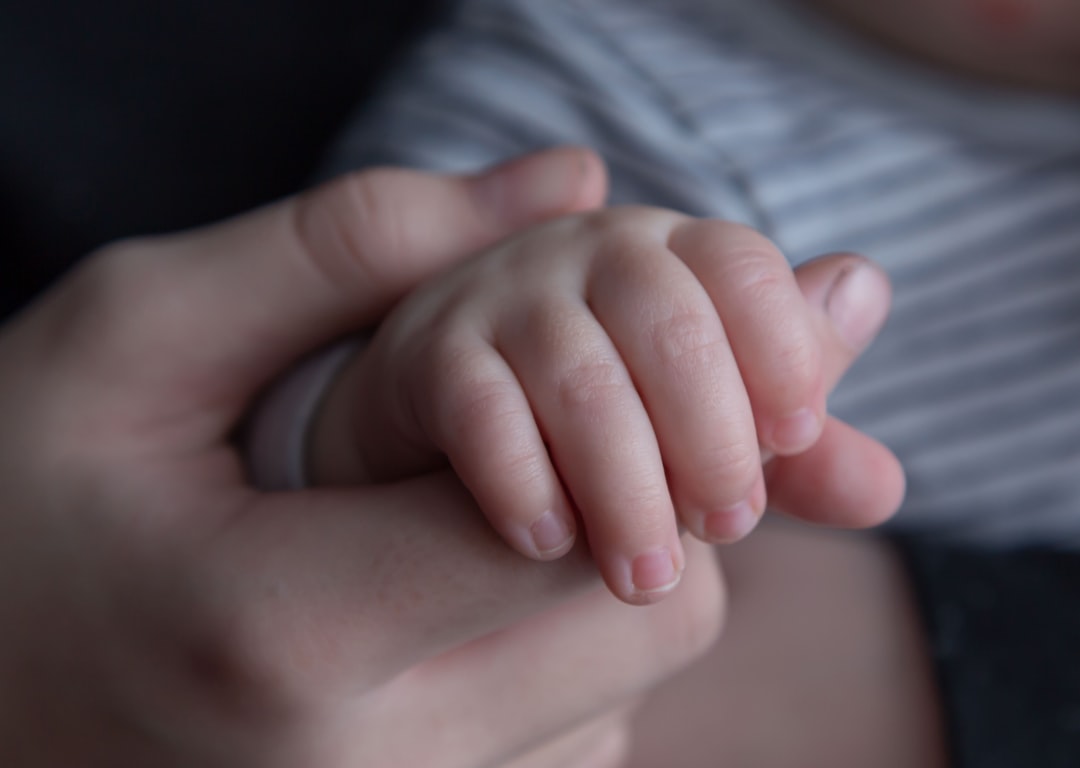
Each week, as I comb through the news to find stories to share in Medical Motherhood’s news briefs, I see a disconnect in the narratives.
Invariably there are these two types of stories: The first type is about people — often perfect strangers — showing love, compassion and support for disabled children and their families. Sometimes these can veer into inspiration porn — celebrating disabled people for just doing ordinary things — but for the most part, these are beautiful stories that make me tear up at just how incredibly cool humans can be to one another.
The other type of story — and unfortunately there is at least one every single week — is about how, at a systemic level, we are failing these same children.
How can that be? From special education, to social services, to children’s hospitals, these multibillion-dollar systems exist because of the compassion and support ordinary people show for disabled children. Most of our society thinks this is a worthy population to spend their money on — that’s why they have voted for politicians and taxes and policies to make it so.
In real life, strangers can be amazingly kind to our disabled children. So why don’t we feel supported by the systems they fund?
Often when I ponder this problem, I think of the book I read years ago by Dan Ariely, a behavioral economist now at Duke University. In Predictably Irrational, Ariely lays out the case for two fundamental principles of economic behavior that I think apply here:
1. Money changes how people feel about tasks. People will do things for free that they wouldn’t do for money.
Imagine if you were grieving and a friend came to your house with a casserole. That would be lovely. Now imagine you paid them $5 to say thanks. That would feel weird and icky. Why is that? They were doing it for free, and now they have an extra $5 — isn’t that a bonus? But no, it wouldn’t feel that way, because they weren’t doing it for money. And, if you start to think about the act of cooking and delivering a casserole in market terms, $5 is a rip-off — the ingredients, time and gas money cost much more than that. Instead of the money feeling like a bonus, it would probably make your friend never want to do that again.
In his book, Ariely says once you cross that line, it’s not easy to go back either. “When a social norm collides with a market norm,” he writes, “the social norm goes away for a long time. In other words, social relationships are not easy to reestablish. Once the bloom is off the rose — once a social norm is trumped by a market norm — it will rarely return.”
2. Distancing money from the source means people treat it differently. People treat cash more honestly than tokens bought with cash.
“When we look at the world around us, much of the dishonesty we see involves cheating that is one step removed from cash,” Ariely writes.
Normally, when we gift money directly to people in need, both people feel good. But in tax-funded programs and even some charity donations, the source of the money is removed from the recipient of the money by so many layers that — often — both feel bad about the transaction.
In some ways, I can see the need for large, highly complex organizations to combat the large, highly complex problems of our massive human population. But for the most part, I believe that services would be more effective if they were MUCH more simple and direct. The last thing people in a crisis need are lengthy, opaque and complicated processes to aid — yet those are exactly the services on offer today. Similarly, the people who get into care work fields did so because they want to help, not so they could make a quick buck. They need much fewer barriers to providing that help.
Some people will take this argument to mean that we shouldn’t pay family caregivers or parents as caregivers, as I have long argued for. But parents’ care for their children goes beyond market forces. The parents I’ve spoken to see the economic resources as the path to their children’s care and wellbeing, rather than the other way around.
The more we spend on “services” to do things for other people, rather than just letting the needy direct the resources themselves, the worse the outcomes. This is why “person-centered planning” and “individual education plans” are such buzzwords. These are systems trying to get the players to interact on a human-to-human level.
Our society has tried for decades to get a system of care that replaces the work that loving family does and it rarely works.
A paper out this month from the University of Minnesota’s Institute on Community Integration shows that most people with I/DD live with family for their entire lives — a trend that is only growing over time.
“Public policies that focus scarce long-term services and supports (LTSS) resources on non-family settings at the expense of people living with family members fail to honor the critical role families play,” reads the report. At the same time, these families make sacrifices to do so — further straining public resources.
“Families supporting a child or adult with IDD report that caregiving requires them to periodically go into work late, leave early or take time off to provide care (91%), cut back their hours of work (55%), or give up work entirely (32%). Only 34% of family caregivers report being in excellent or very good health, and 94% were somewhat, very, or extremely stressed (Anderson, et al., 2018).”
The simple fact is this: You can’t pay someone to care. Caring is a spiritual endeavor, not an economic one. The amazing people who have cared about my children have done so despite being paid, not because of it.
At the same time, most of them never would have met my kids if there hadn’t been a system to pay them to help. And I believe strongly that such jobs of public service are the backbone of any human society and deserve to be richly compensated.
So here we sit at this paradox: We need well-funded systems of care and we also need families and communities that do the work from a deeper place of love.
How do we get our systems to be more responsive to the needs of the people they were designed to help — when the very act of paying people makes them more limited in what they are willing to do?
I think you know my answer. Parents care about their disabled and neurodivergent children, whether or not they are paid. People with I/DD are brilliant, capable and experts on their own needs. All of us willing to go to enormous lengths to stretch a dollar and to find the right idiosyncratic solutions to our particular problems, if given the chance.
We need to let the general public’s compassion shine through our systems of care with a little more honesty, a little more trust, a little more direct support and a lot less patronization.
Medical Motherhood’s news round up
Snippets of news and opinion from outlets around the world. Click the links for the full story.
• From KRQE: “Parents of kids with disabilities say New Mexico is failing them”
Amariz [Cortez] is one of about 250 children [in New Mexico] considered medically fragile. She was approved for the State’s Medicaid waiver program, which should be providing an in-home nurse. “However, the idea of having a nurse come into our home — to help with — to meet Amariz’s needs has always been a distant wish,” [her mom] Alicia [Cortez] said.
At most, Amariz’s family said she received 20 hours for about a month or two in 2020. She requires 40 hours, according to an assessment conducted through the University of New Mexico’s Center for Development and Disability. So, the Cortezes submitted written requests. The response? Alicia said she was told to go through the appeals process. She questioned, “Why should me and my daughter, or anybody on the medically fragile waiver program or any state aid program like this, have to jump through fiery hoops to be able to get the most basic of services that this waiver provides?”
Tired of asking, the Cortez Family sued. And they are not the only ones.
In the federal lawsuit, they and three other New Mexican families call out the Department of Human Services. The state agency gives Medicaid dollars to three insurance companies – Blue Cross and Blue Shield of New Mexico, Western Sky Community Care, Inc., and Presbyterian Health Plan, Inc. – to pay for nursing services. The families claim those three are pocketing the taxpayer money rather than providing nurses.
• From Pamplin Media Group in Portland, Ore.: “A mother, a boy and an uphill battle”
"We are invisible," [Sonia] Landi said of families like hers. It's not just the state system that overlooks the realities of developmental and physical disabilities. She recalled a school fundraiser that brought in money for school supplies, but services and supplies for children with disabilities weren't included.
In fact, Landi and her spouse spend thousands of dollars each year for an attorney, just to make sure her son's school follows his Individualized Education Plan, as required by federal law.
"We don't go out to the restaurant, fine. I pay the lawyer," Landi said, noting the small things her family goes without to make sure there is money to cover her son's care and right to adequate education. "Last year, I paid $3,000 to support my child's education. People are disconnected from the reality of families like mine."
• From KRCR in Redding, California: “C.A.S.T for Kids gives disabled children the tools to fish”
CAST for Kids is a national nonprofit organization that hosts events all over the country, and uses the sport of fishing as a way to unite and encourage disabled kids within the community.
[…]Many people within the Shasta [Lake] community have volunteered their time to either help on the shore or help on the boats. 20 fishermen, some, even from out of town, made the trip out to volunteer their time and their boat for the morning.
One fisherman tells KRCR “this is the 5th or 6th year I've done CAST for Kids. I had a great time today truly is such a fun time and learning experience for the kids”
One father who brings his daughter every year mentioned his gratitude for this program and how much his daughter looks forward to it. “We are just very grateful for the people who made the event happen for their generosity and hospitality and she loves it.”
Medical Motherhood brings you quality news and information each Sunday for raising disabled and neurodivergent children. Get it delivered to your inbox each week or give a gift subscription. Subscriptions are free, with optional tiers of support. Thank you to our paid subscribers!
Follow Medical Motherhood on Facebook, Twitter, TikTok, Instagram or Pinterest. The podcast is also available in your feeds on Spotify and Apple Podcasts. Visit the Medical Motherhood merchandise store.
Do you have a story to share or an injustice that needs investigation? Tell me about it and it may become a future issue.













